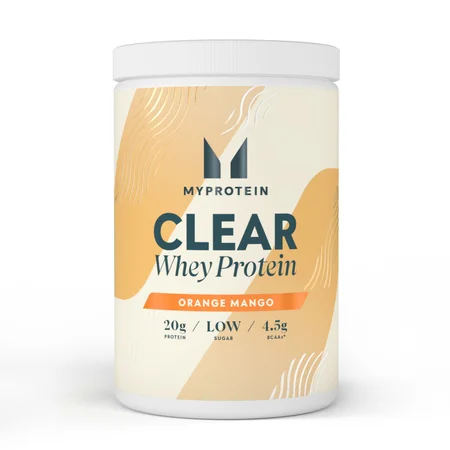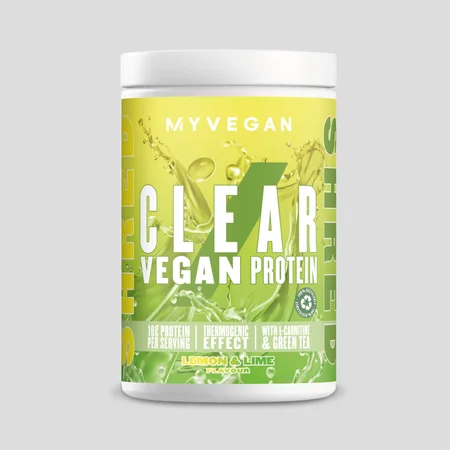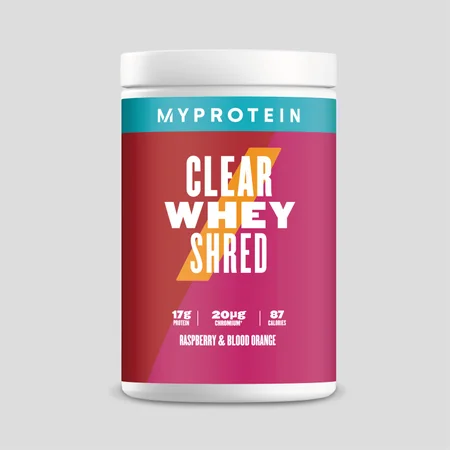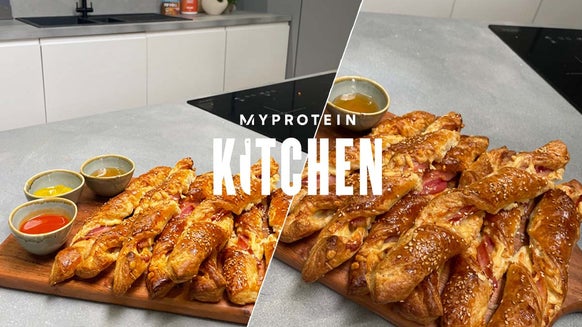Nutritionist Shares 8 Money-Saving Tips For Nutrition On A Budget
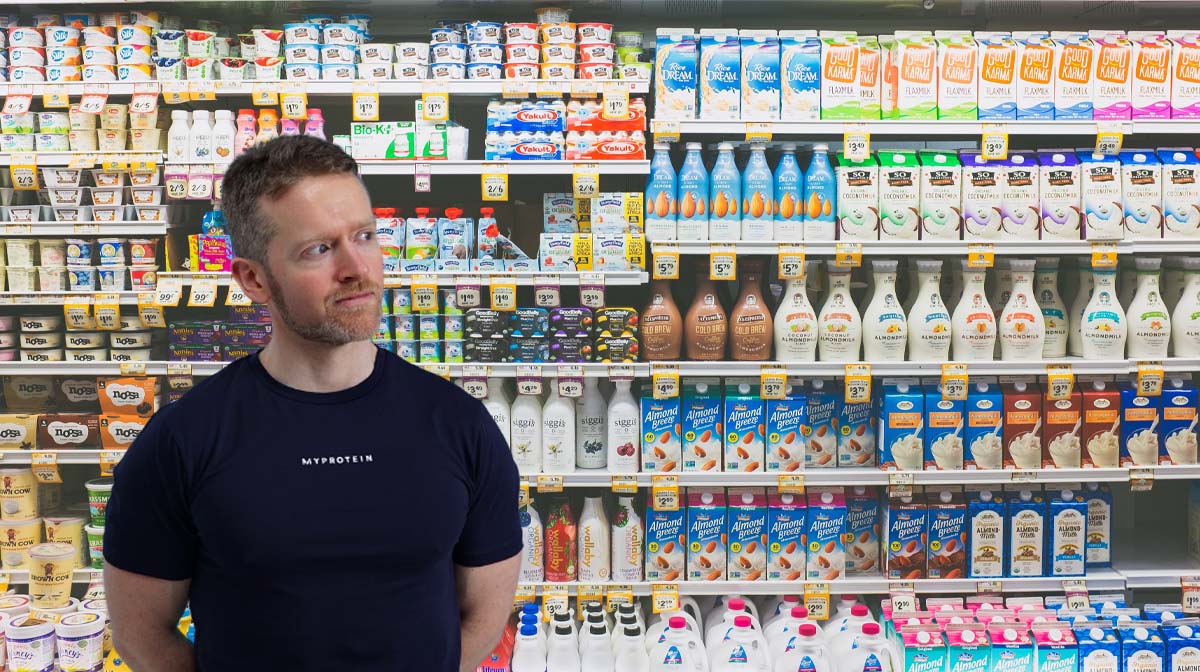
I'm nutritionist Richie Kirwan and today we’re going to talk about some of my top tips for saving money while still eating a really healthy diet that helps you with your physique goals, be it bulking and building muscle, losing body fat or just maintaining an all round healthy diet.
There’s this really silly notion that to eat healthy or to eat for a specific body composition goal, you need to spend a lot of money. It’s something that I’ve never really understood myself because I’ve always been a really frugal shopper.
I was already really into nutrition by the time I went to university and as that was the first time in my life that I was shopping for myself (thanks mam for taking care of that for the first 18 years of my life) I had to learn to make my meagre college wages last while keeping my diet as healthy as possible.
Since then, I’ve always stayed pretty careful with money when it comes to my food shopping so I want to share some tips that have had the biggest effect on keeping my food bill down. Before we get into them, I really want to point out that you may not be able to or even want to try everything I mention here.
We all have different lifestyles, different budgets, cooking skills and different amounts of free time that will make some of these tips more or less applicable. Take what works for you, because even a small saving can help.
1. Shop in budget supermarkets
My first tip and probably the simplest and most effective of them all is to shop in discount supermarkets. That might sound stupidly obvious but many people still do their “big:” shop at larger supermarkets meaning they’re paying extra for a lot of products that they could buy cheaper elsewhere.
Shopping in a discount supermarket like Aldi or others depending on what’s available where you live, means you don’t have to think about finding the cheapest items because everything you buy there is more than likely cheaper than you’ll buy anywhere else. There’s a reason those supermarkets always compare themselves with the bigger supermarkets, they’re always cheaper.
Protein sources like meat, eggs, dairy products, wholegrain or unrefined carbs like oats, potatoes, brown rice, brown bread, fruit and vegetables, nuts and seeds, even olive oil. All those foods will make up the bulk of a healthy diet and all can be bought a lot cheaper in cheaper supermarkets.
2. Learn how to compare prices
This may seem silly but this is such a useful skill but many people have no idea how to do it at all. You see, when similar products are sold in different size packages, it can make comparing the prices a little tricky at first. This is where unit price is super useful. Unit price is the price of specific quantity of a product.
For example, unit price for protein powder or almonds might be per 100 grams, or unit price of orange juice might be per 100 mililitres. When you’re in the supermarket, if you look under the price of the product you’ll often see the unit price written too. That lets you to compare the price of two similar products, even if the package size isn’t the same. This is a really good way of comparing popular brand products with own-brand versions.
Once you’ve learned to compare prices by unit price, you’ll understand my next few tips. One is to switch to supermarket own-brand products instead of always buying brand name products. You see, most big-brands can rely on their name or reputation to sell at a much higher price… even if the quality isn’t all that different.
If you compare a big-brand product like cereal with a supermarket’s own brand product, the difference in unit price is usually ridiculous… and you’re just paying for a name (or something that you’ve been used to eating in the home you grew up in).
3. Buy in bulk
My next tip is to buy in bulk when possible. Most stores will sell bigger quantities of almost all products like meat, rice or vegetables for a cheaper unit price. So while a 1kilogram pack of chicken breast will cost more than a 300g pack, the unit price for the 1 kilogram pack works out lot cheaper in the long run.
The exact same goes for protein powders and other supplements. A 5kg bag of whey protein is actually a LOT cheaper than a 1 kg bag if you think about the unit price and how much you’d pay in the long run. So when it comes to buying food or supplements you use regularly, bigger is usually better.
4. Get smart with food storage
That last tip brings up a really important issue at this point and that’s food storage and avoiding food waste. You see, buying food in bulk isn’t much use if you don’t store it well and it ends up going bad and spoiling. That’s why putting some time into proper food storage is a really good idea.
And by storage I don’t mean anything complicated. You can freeze pretty much anything to allow you to use it later. Extra meat, throw it into a ziplock in individual portions and freeze it. Too much bread, throw it straight in the freezer. Can’t use all the pasta sauce in the jar? Pop it in a little Tupperware container and freeze it. Made too much rice, freeze it.
I’ll admit I’m probably a little OCD but my own freezer is filled with loads of different foods that I’ve portioned out and frozen for later. Portioning them out also makes defrosting them super easy and makes sure I don’t waste any by defrosting too much.
Just as an example, I love basil pesto, but whenever I buy a jar I never use it fast enough and after a couple of weeks it usually has a fluffy layer of mould on top. So instead, now when I open the jar I pour it into ziplock bag and freeze it flat. Then whenever I need some, I just break off a little and it lasts forever.
5. Raid the frozen section
In the same line, buying pre-frozen foods like meat, fruit and veggies can be a lot cheaper than buying fresh. You see, while fresh produce is often cheapest when you buy fruit and vegetables in season, we’re very used to having access to all the fruit and veg we want, all year round. The price of frozen fruit and veg on the other hand stays pretty constant and can often work out cheaper than buying fresh.
Another advantage of buying frozen is that frozen food is usually frozen very soon after harvesting which means it can retain more vitamins than “fresh” produce that can spend weeks in transport, storage and on supermarket shelves before getting eaten.1,3
6. Special offers
Right, moving on. One way of saving serious money on your groceries and supplements is buying things when they’re on special offer. Look out for 2-for-1 or similar offers in your supermarket or many supermarkets will discount food when it’s reaching its best before date. This is a good time to buy foods like meat or fish which you can freeze as soon as you get home.
And as for supplements, all I’ll say is, take advantage of sales and special offers. It’s worth waiting for these offers to buy what you need, in bulk, to make massive savings.
7. Prep more at home
Another way to save a huge amount of money is to prepare more food at home and eat out less. A lot of people don’t realise how big the mark up on foods is (even cheaper foods like sandwiches). If you have the time to prepare your lunches at home, instead of buying it in the shop or going to a café or restaurant for food, it will save you a lot of money.
On top of that, preparing your own food allows you to make sure you’re getting the calories and macros that you want instead of trying to balance a meal from the supermarket or a restaurant. There’s a lot of research that suggests that people tend to eat a lot more when they eat out compared to eating at home so that’s worth bearing in mind too.4,5
8. Don't waste your money on organic foods
Finally, I’m going to leave you with a slightly controversial tip and that’s to not waste your money on organic foods. When it comes to organic food, you’re paying a huge extra price for something that nutritionally has no differences to conventional products in terms of macros, vitamins and minerals and that doesn’t really have any proven extra health benefits6. That said, there is evidence organic produce is higher in some phytonutrients (7) but how beneficial this is to health is harder to work out.
I used to think that organic produce was much better than conventional produce but there really isn’t any objective evidence to show that. Organic produce can still use some approved pesticides and fertilizers (8) and in terms of the environmental impact, organic may not be better than conventional because of lower yields, more land usage and more intense labour.9,10
Organic produce is expensive and if the price is stopping you from buying lots of fruits and vegetables, you’d probably be better off buying and eating lots of conventional fruit and veg that still has plenty of vitamins, minerals, fibre and other phytonutrients.
Take home message
Like I said, you don’t need to (and probably can’t) apply all the tips I’ve mentioned here but hopefully you’ll find one or two of them useful. Before I finish up, it’s worth pointing out that some of the things I’ve mentioned, like cooking more at home, can be time-consuming and because time is a form of currency too, you have to figure out if the extra time invested is worth your while.
So, I hope that you found these tips useful and if you have any more that I left out here, I’d love it if you could let me and the other viewers know in the comments below.? As always, remember to hit that like button and to subscribe to the Myprotein YouTube channel for more great, evidence based nutrition information.
READ THESE NEXT:
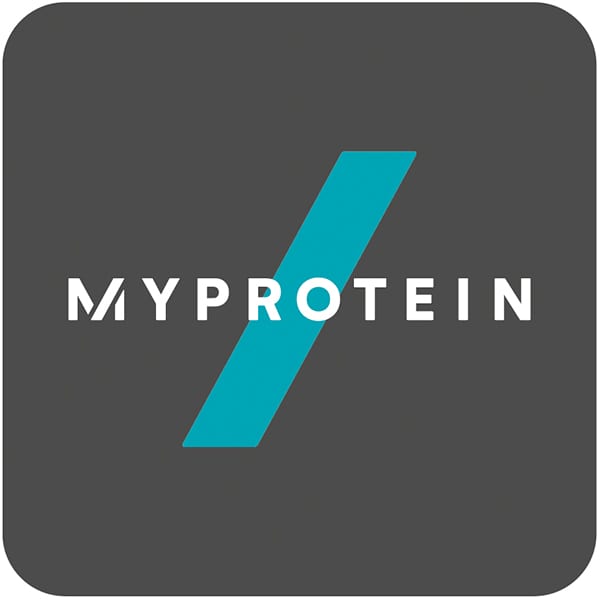
1. Bouzari A, Holstege D, Barrett DM. Vitamin retention in eight fruits and vegetables: a comparison of refrigerated and frozen storage. J Agric Food Chem. 2015;63(3):957-62.
2. Rickman JC, Barrett DM, Bruhn CM. Nutritional comparison of fresh, frozen and canned fruits and vegetables. Part 1. Vitamins C and B and phenolic compounds. Journal of the Science of Food and Agriculture. 2007;87(6):930-44.
3. Rickman JC, Bruhn CM, Barrett DM. Nutritional comparison of fresh, frozen, and canned fruits and vegetables II. Vitamin A and carotenoids, vitamin E, minerals and fiber. Journal of the Science of Food and Agriculture. 2007;87(7):1185-96.
4. Nielsen SJ, Siega-Riz AM, Popkin BM. Trends in Energy Intake in U.S. between 1977 and 1996: Similar Shifts Seen across Age Groups. Obes Res. 2002;10(5):370-8.
5. McCrory MA, Fuss PJ, Saltzman E, Roberts SB. Dietary Determinants of Energy Intake and Weight Regulation in Healthy Adults. The Journal of nutrition. 2000;130(2):276S-9S.
6. Bourn D, Prescott J. A Comparison of the Nutritional Value, Sensory Qualities, and Food Safety of Organically and Conventionally Produced Foods. Critical Reviews in Food Science and Nutrition. 2002;42(1):1-34.
7. Brandt K, Mølgaard JP. Organic agriculture: does it enhance or reduce the nutritional value of plant foods? Journal of the Science of Food and Agriculture. 2001;81(9):924-31.
8. Klonsky K. Comparison of Production Costs and Resource Use for Organic and Conventional Production Systems. American Journal of Agricultural Economics. 2012;94(2):314-21.
9. Gomiero T, Pimentel D, Paoletti MG. Environmental Impact of Different Agricultural Management Practices: Conventional vs. Organic Agriculture. Critical Reviews in Plant Sciences. 2011;30(1-2):95-124.
10. Mondelaers K, Aertsens J, Van Huylenbroeck G. A meta‐analysis of the differences in environmental impacts between organic and conventional farming. British food journal. 2009.
Related Posts

How Did Lockdown Affect The UK’s Health? Survey Results Revealed | What We Can Learn In Australia?

